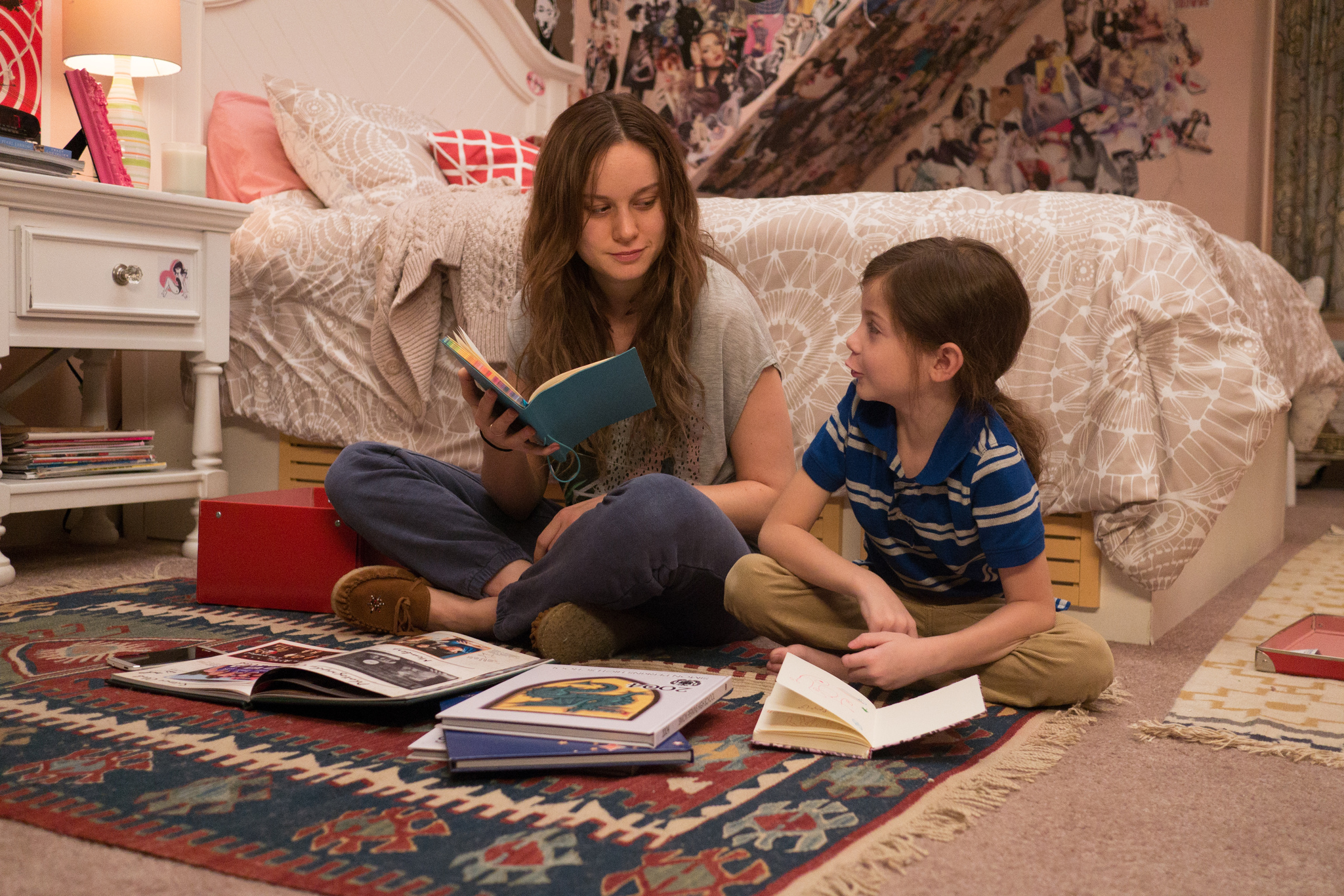Parent-child intimacy has rarely been so vividly etched in the movies as in the moving Room, in which we witness a mother and young son locked away in a single-room hellhole before escaping to a completely new set of challenges in the outside world. It’s a richly thematic picture with three great performances, and one that aspires to narrative heights it doesn’t always reach. Nonetheless, it is an arresting, frightening and ultimately uplifting experience.
Helmed by Irish filmmaker Lenny Abrahamson and based on the 2010 novel, with a screenplay by author Emma Donoghue, Room immediately plunges us into claustrophobia—the maximum security, 11×11, backyard shed housing kidnapping victim Joy Newsome (Brie Larson) and her five-year-old son, Jack (Jacob Tremblay), the product of her ongoing victimization by captor Old Nick (Sean Bridgers).
Imprisoned herself for seven years, “Ma” creates a world of love and discipline in their confined space with boundless possibilities for her son’s imagination. Their relationship to each other and their home—the entire world, to Jack—is place of love, books, television, storytelling, bath and bedtime and one where, like any mother, the child’s happiness and safety come first.
But as Jack daydreams about a planet outside the skylight above, Ma’s hope seems bleak that he will ever experience such. While some will be put off by the darkness of such a dilemma, one must credit both the intensity between the actors and ingenuity of director Abrahamson for carving out such a distinct and believable relationship under such dire, limited circumstances.
Told from Jack’s point of view, the film’s first 50 minutes chart this confinement, both harrowing—Ma is visited nightly by Old Nick—and desperate, as their captor deprives them of nutrition and heat before notifying them that he has lost his job, and the house will be next. For Ma, the writing is on the wall—escape, or die.
This sets the stage for the film’s most heart-stopping scene involving Jack, a rug and a pick-up truck, and one that had my heart beating ferociously. It’s a remarkable sequence as young Jack sees the outside world for the first time while orchestrating a daring escape.
Once rescued, the pair is taken in by Joy’s mom (Joan Allen) and new stepfather (Tom McCamus), a former family friend who has replaced her dad (William H. Macy, well used in a small role). Despite doctor’s warnings and a barrage of tests, Joy expects a quick return to normalcy—toys, ice cream and a loving home—but is unable to assimilate, and the loss of intimacy between mother and son, now that their world has expanded, takes an unexpected toll. So does the media attention, particularly a national news interview that leads to a nervous breakdown and suicide attempt.
Meanwhile, Jack tentatively absorbs and adapts, and children do, and grows closer to his grandmother, played with such gentleness by the great Allen, the most well meaning of characters. There’s a moment between them in a bathroom where Jack delivers the film’s most poignant line of dialogue, unexpected and extraordinarily affecting. He also learns about the sights and sounds of the “other planet” where he now lives, and develops new relationships with a boy next door and the family puppy.
Larson, the emotionally rigorous actress who is unrecognizable from picture to picture (and seen this year in Trainwreck and Digging for Fire), aces Room’s tremendously difficult emotional terrain. Like her live-wire character in Short Term 12, she is raw to the bone, here without make-up, a spotty complexion and eyes that alternately brim with rage and tears. It’s a herculean performance in a movie that gives her lots of room to grow, even if it doesn’t quite take her far enough in its final sections.
But it is newcomer Tremblay, seven when Room was filmed, who both narrates and carries the film, all but bowling us over with his childlike wonder at the small room’s vast, imaginative recesses, and then his striking reactions to the outside world (“The door is ticking”), one where he finds great strength, for the mother who now has such deep need. It is a major performance—not merely a good child performance—of such high emotional intelligence, observing, evaluating and eventual understanding, that it is hard not to feel awestruck.
Vastly compassionate for its characters, Room is simultaneously heartbreaking and inspiring. And while the narrative perhaps does not go deeply enough into Ma’s breakdown and rebirth, it is told from Jack’s perspective, a remarkable character who believes his long hair, which gives him a girlish visage, also gives him his greatest strength. When he cuts that hair for a specific reason, there is a real coming of age here, and that resonates.
3 1/2 stars.



